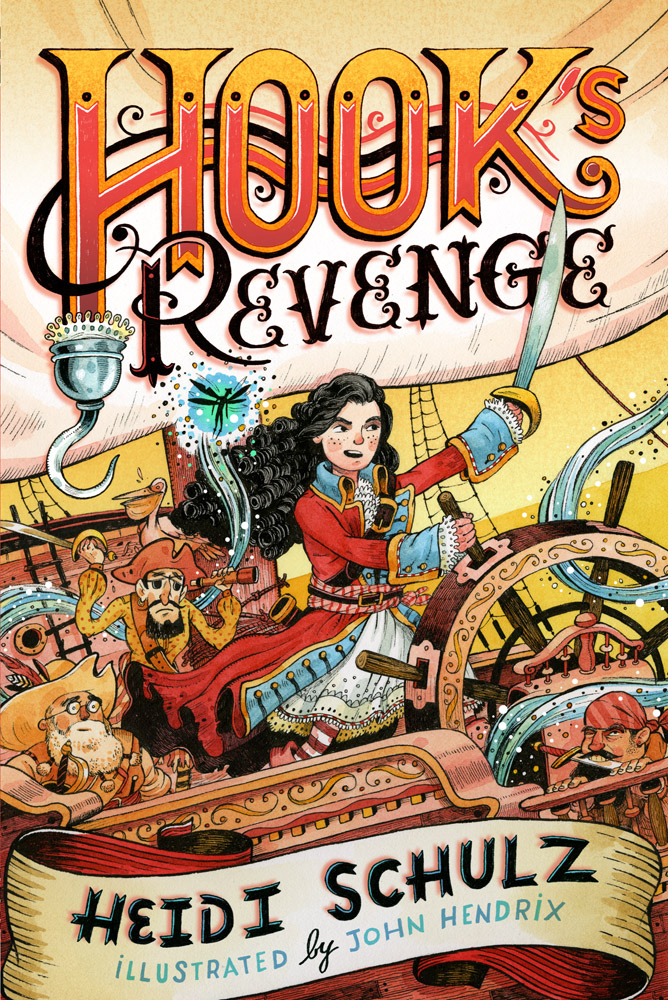by Heidi Schulz | Aug 23, 2011 | Homeschooling, Other Books and Reading, Word
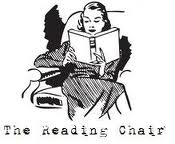 Here’s what has been off the shelves and in our hands this week:
Here’s what has been off the shelves and in our hands this week:
What I’m Reading
Leadership Education: The Phases of Learning , by Oliver and Rachel DeMille
, by Oliver and Rachel DeMille
I love this book. I educate my daughter (and myself, because honestly? I’ll never be “educated enough”) using the principles found in A Thomas Jefferson Education: Teaching a Generation of Leaders for the Twenty-First Century . While that book is excellent at explaining the What and Why of TJEd, it falls short when it comes to How. Leadership Education helps to fill that gap. As we are gearing up for another school year, I’m reading it (again) and feeling both excited and inspired about where we are and where we are heading.
. While that book is excellent at explaining the What and Why of TJEd, it falls short when it comes to How. Leadership Education helps to fill that gap. As we are gearing up for another school year, I’m reading it (again) and feeling both excited and inspired about where we are and where we are heading.
Gulliver’s Travels , by Jonathan Swift
, by Jonathan Swift
One great thing about classics is that they grow with you. When I first read this book years ago, I didn’t even know it was a satire. Now, having brushed up on my English history a bit, I’m finding the war between Lilliput and Blefuscu fascinating. I had no idea that Swift was really talking about the conflicts between Catholics and Protestants.
Gulliver’s Travels is a good story in it’s own right, but has far more to it than I knew. I’m looking forward to reading more.
Shiloh Season , by Phyllis Reynolds Naylor
, by Phyllis Reynolds Naylor
Newt decided that this would be a great pick for our mother/daughter book club (membership: 2). As soon as she finished, I was to read it and then we could discuss.
I was in the room, doing some work on my laptop, when Newt read the last page. She closed the cover, looked at me, and burst into tears.
It was so good, Mama! The ending was happy but sad at the same time and I really want to tell you about it, but I don’t want to spoil it. Well, I let her go ahead and tell me, but I won’t do the same for you.
However, I will tell you what we discussed.
Note: I don’t write out questions beforehand, but I do think a bit about what we could discuss as I read. Sometimes I jot down a few notes. The actual discussion happens organically, and quite often more questions come out of it. However, just for you, I have written out what we discussed in question form.
- Just like in the last book, Marty is carrying some heavy secrets. How can secrets be a burden? When should you tell?
- In what ways has having Shiloh changed Marty? For the better? For the worse?
- Is Marty trustworthy? When you lose someone’s trust, how difficult is it to gain it back?
- What is a mentor? Who are Marty’s mentors and what does he learn from them?
- Why is language important? Are there times and places where improper grammar is okay? Are there times and places where it isn’t?
- Marty wants to be a veterinarian. Compare his father’s reaction to Doc Murphy’s. Why did each react the way he did? In your opinion, which was better?
- What is the best way to resolve a disagreement with someone?
- Describe Marty’s relationship with his sisters. Is he a good brother?
What I’m Reading to Newt
Matilda Bone , by Karen Cushman
, by Karen Cushman
I love Karen Cushman. Newt and I studied medieval times for history last year, and really enjoyed Cushman’s The Midwife’s Apprentice . Matilda Bone revisits that time period. Abandoned by the stern and wealthy priest who raised her, Matilda becomes a reluctant servant to the local bonesetter. This new servile life is frustrating and unsettling to a girl who “knows Latin, French and some Greek, as well as reading writing and figuring…can name the three wise men, the seven deadly sins and a great many of the 133,306,668 Devils of Hell.” Yet Peg, the good natured (though illiterate!) bonesetter seems to be giving Matilda an education in matters even more important. I think there will be quite a lot for Newt and I to discuss as we read.
. Matilda Bone revisits that time period. Abandoned by the stern and wealthy priest who raised her, Matilda becomes a reluctant servant to the local bonesetter. This new servile life is frustrating and unsettling to a girl who “knows Latin, French and some Greek, as well as reading writing and figuring…can name the three wise men, the seven deadly sins and a great many of the 133,306,668 Devils of Hell.” Yet Peg, the good natured (though illiterate!) bonesetter seems to be giving Matilda an education in matters even more important. I think there will be quite a lot for Newt and I to discuss as we read.
What Newt is Reading
Saving Shiloh , by Phyllis Reynolds Naylor
, by Phyllis Reynolds Naylor
This book is the last in the Shiloh series. I pulled this off the library shelf a few days ago and Newt practically tore it out of my hands, she was so anxious to read it. She’s been giving me a few updates as she reads and it sounds like it will be every bit as good as the first two.
Horses: How to Choose and Care for a Horse , by Laura S. Jeffrey
, by Laura S. Jeffrey
Let’s file this one firmly under “Wishful Thinking”.
What are you reading right now? Anything inspiring you?
Amazon affiliate links are being used. If you purchase anything from my links I get a small commission. Thanks!
Like this:
Like Loading...
by Heidi Schulz | Aug 22, 2011 | Heidi Bosses You, Recipes
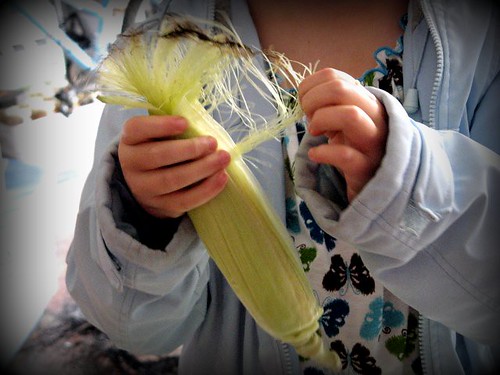
Early this year, ago I had an opportunity to attend a workshop put on by a well-known healthy-foods author and blogger. As she spoke about her journey to healthy eating, I found myself nodding in agreement. She talked about the stress and uncertainty of having a child with asthma and reoccurring ear infections…
Me too.
…the frustration of looking to her pediatrician to fix her sick child and being told, “I have no answers, but here’s a prescription”…
So frustrating.
…the worry about what damage multiple rounds of steroids might be doing to her child’s body…
It’s terrifying, but they have to breathe. You feel so helpless.
So much of her story sounded like mine. I could even relate when she talked about the whirlwind changes she made in her family’s diet, and how her family did not always respond with enthusiasm. That actually made me laugh a little because just the night before, my previously meat-at-every-meal family had not been exactly thrilled with a dinner of quinoa-stuffed peppers and salad. I was still smiling when she mentioned that all of the “weird dinners” had made her husband pretty grumpy.
And then she said, “Many people wonder if all the dietary changes are what led to our recent divorce.” She didn’t elaborate further; she just left that statement hanging there for a minute before moving on to talk more about healthy meal preparation. I’m not sure if she had even intended to say that at all…
Here I am many months later, and it is that statement that has stuck with me. When I first started changing my diet, I couldn’t believe how good I felt. I had energy! I was sleeping better! I was loosing weight! Naturally, I wanted to share what I was feeling with my husband…
Read the rest of my Food Wars story at Modern Alternative Mama.
Unrelated: If you missed it, be sure to check out my five reasons why you may want to reconsider paying your children to do chores (with linky). There are a few other blogs linked up – be sure to go visit and read their takes on allowance.
Like this:
Like Loading...
by Heidi Schulz | Aug 18, 2011 | Homeschooling
Need to catch up on your work? Past posts in the Family Work series:
Principles and Vision
If Mama Ain’t Happy
Are My Kids Allergic to Work? {link up}
Chore Charts and Other Motivators {link up}
And though not specifically about work, you won’t want to miss Nicholeen Peck’s guest post on Teaching Self Government.
If you haven’t already, please take some time to go visit (and comment on) the posts of those who have linked up. And remember, our September 2 Family Work post is a work-party. I’ve lined up some fun prizes to give away. Anyone who links up will automatically be entered to win.
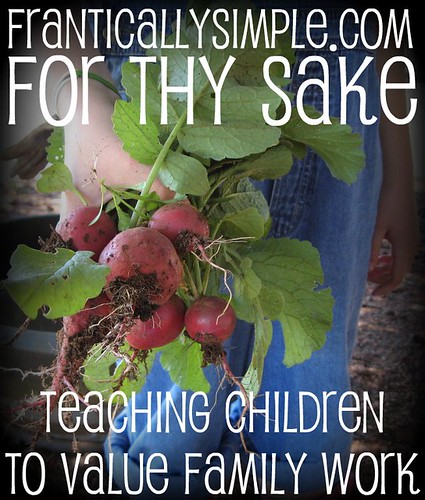
Allowance, to Pay or Not to Pay
I’m firmly in the Give an Allowance Camp. Kids who don’t learn about money run the risk of becoming adults who make poor money decisions. A child who is allowed some spending money, taught how to use it, and allowed to make mistakes with it, is learning valuable lessons. Like: if I spend all my money on candy today, I’ll never be able to save enough for the game I really want.
I like allowance. However, here is where my fellow Allowance Campers and I may disagree.
I don’t think it’s a good idea to pay children to do their chores.
Wait, before you take away my s’mores and kick me out of camp, hear me out.
Five Good Reasons Why You May Want to Reconsider Paying Children for Chores*
1. Money eclipses other good reasons for doing work and becomes the main motivator.
I mentioned this last week when we were talking about incentives for chore charts. Work can be rewarding in its own right. Children receive a sense of accomplishment, pride and increased self-confidence for a job well-done. Children also really do want to please their parents (even if they act otherwise). Putting a monetary value on chores overshadows all of those other things. They begin to work for the dollar instead of your praise.
In Freakonomics , the authors talk about a study done at several day care centers. Each center had a few parents that would habitually arrive late to pick up their children. The day cares decided to impose a monetary penalty on the parents if they were more than a few minutes late. To their surprise, the cash penalty caused the number of parents picking up late to increase. It was determined that once there was money involved it overshadowed the moral reasons for being on time. Instead there was a feeling of, this is okay because I’m only out a little bit of money.
, the authors talk about a study done at several day care centers. Each center had a few parents that would habitually arrive late to pick up their children. The day cares decided to impose a monetary penalty on the parents if they were more than a few minutes late. To their surprise, the cash penalty caused the number of parents picking up late to increase. It was determined that once there was money involved it overshadowed the moral reasons for being on time. Instead there was a feeling of, this is okay because I’m only out a little bit of money.
The same can happen with chores. Contrast a child who thinks, “If I don’t clean up after my dog today, my mom might be unhappy with me” to one who thinks “If I don’t clean up after my dog today, I won’t get my dollar”. If that child decides they don’t really need a dollar today, it’s not so hard to decide not to do it.
That brings me to the next reason.
2. Paying for chores implies that the child can choose whether or not to do them.
Of course they can choose either way, right? But there is a big difference between “I have to do my chores because my parents expect each member of the family to do their part” and “I have to do my chores if I want money.” Sometimes the desire to not do the chores will be greater than the desire for money.
3. It creates a spirit of competition over cooperation.
Children are far less likely to help each other when there is money involved. Say you tell your family, “As soon as we all get done cleaning the living room, we’ll go to the park.”
If children are used to being paid for their work, you may begin to hear this: “I’m done with my jobs. I won’t help you unless you give me x amount of dollars.”
If money is not involved, the children may be more willing to help each other get done for the reward of going to the park.
4. Having to pay for chores reinforces the idea that “housework” is menial.
Have you ever heard a child ask “How much will you pay me to do this?” When children are asked to serve their families without compensation, the work is elevated.
We do these things because we love each other, because we take pride in our home and yard, because it feels good to create something lovely not because we are paid servants.
This goes along with the next point –
5. It teaches a love for money, not for the work, or the family the work benefits.
Think back to your vision. Do any of these points resonate?
Bonus Reason: Eventually children get old enough to begin earning money elsewhere and their motivation to earn money for chores at home decreases dramatically.
That’s not to say I think children should not be given opportunities to earn money at home. They should. But for extra (non-required) work.
I’m currently reading Cheaper by the Dozen , by Ernestine Gilbreth Carey. The parents had a genius idea for extra work that needed to be done around their place – a closed bid system. They would approach their children with a job, say, painting the fence. Any interested parties would write down what they would be willing to do the job for, seal it in an envelope and turn it in. The parents would go with the lowest bid. It worked well until the kids got together and started fixing prices. 🙂
, by Ernestine Gilbreth Carey. The parents had a genius idea for extra work that needed to be done around their place – a closed bid system. They would approach their children with a job, say, painting the fence. Any interested parties would write down what they would be willing to do the job for, seal it in an envelope and turn it in. The parents would go with the lowest bid. It worked well until the kids got together and started fixing prices. 🙂
Here’s how we do it. We give our daughter an allowance of $10 per month ($1 for every year of her age). She gives $1 to the church and the rest is hers to spend or save as she will. Of course, we encourage her to save, but allow her to make mistakes (and feel the result of them). If she is invited to a birthday party, she picks out a gift and pays half of the price (I pay the other half).
If she wants to earn extra money, my husband and I look to see if there is extra work that can be done and we make her an offer. She is also encouraged to look for other earning opportunities.
For example: a couple of years ago, she decided she wanted to save up for a wii. At the time she was being paid only $8 a month allowance, with 80 cents going to her church donation. $7.20 a month does not add to $200 very quickly, so she asked for extra work. We had a big weedy patch behind our house and we offered her a couple of dollars for every 5 gallon bucket she filled with weeds. She earned a little bit more for reorganizing cupboards and closets.
She also asked her grandma if there was work that could be done at her house. In exchange for some cleaning, our daughter was given all the soda cans in the her grandma’s garage ($35 dollars worth!). Little by little, her money grew. After seven months of extra work (and saving her birthday money) she had enough to buy that wii. All that she did to earn it meant something to her. She was so proud. We were too.
Homework: Evaluate your current allowance system in light of your long term vision for your home. Are they in line? If not, what steps can you make to change? Journal Page PDF
Your Turn: How do your kids earn money? Do you have a system?
What do you think about paying kids to do chores? Do you disagree with me?
I’d love to hear your point of view. Please link to your blog post (old or new) with a back link to this post. Or tell me in the comments or on facebook. Then go visit (and comment on) these posts:
*A few of the reasons for not paying a child to do chores were inspired by Kathleen Bahr, 2004 BYU Women’s Conference, “Rejoice in His Labour”.
I am using Amazon Affliate links. If you use one of my links to purchase a book from amazon, I get a small commission. Thanks.
Linked with Works for Me Wednesday
Like this:
Like Loading...
by Heidi Schulz | Aug 18, 2011 | Heidi and Her Family
I had a wonderful birthday, maybe the best ever. I had no expectations, no disappointments, no stress, just fun. It really made a wonderful difference when I took my focus off myself and tried to put it on others.
All day, I looked for little ways to be extra kind to others. One of my favorites was handing out popsicles to the kids and mamas hanging out at the park.
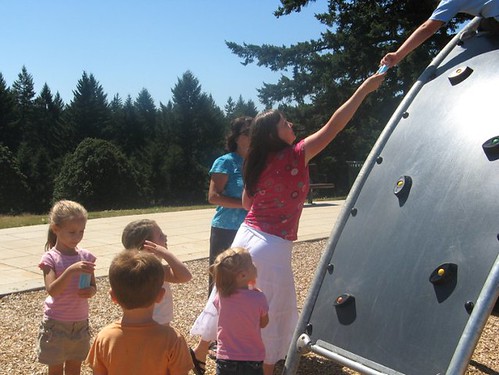
This man was there with his grandkids.
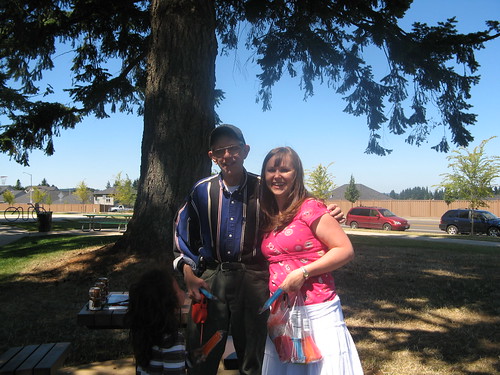
I told him, “It’s my birthday. Want a popsicle?” I was surprised to learn that it was his birthday too. I got all the kids to come over and sing Happy Birthday to him.
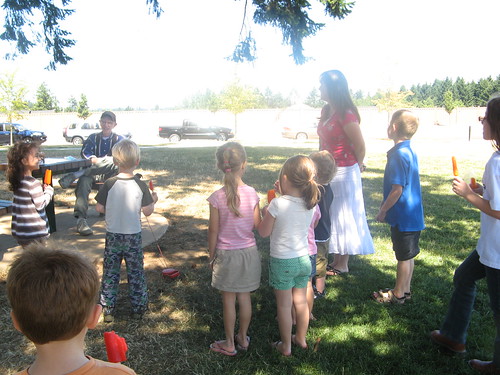
Later, back at home, I baked a big old Texas sheet cake. Newt and I went around delivering huge slices to elderly neighbors and a friend who recently lost her husband. It was a blast to share my day with so many others.
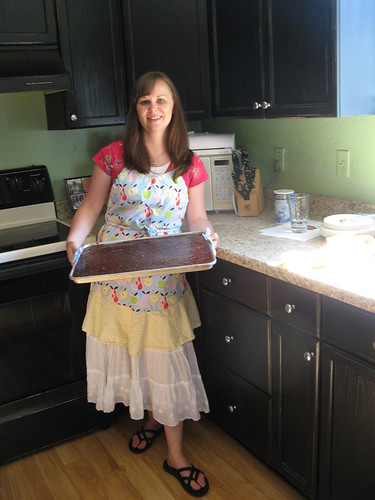
Thank you to everyone who also did kind acts in my honor today. You all are amazing! Those were truly the best gifts. I tweeted them all with the hashtag #heidisbday. (Click link to read them all. And even though my day is over, please feel free to add more. I’m greedy that way.)
And of course my family took good care of me today too. Newt made me the sweetest card about how a mother’s love holds the family together. Walt sent me a bunch of sweet texts from work, then took us all out for my favorite sushi tonight. And they both spent the day looking for ways to show extra kindness to others. I love those guys.
What is that old saying? Happiness shared is happiness doubled?
I think I had more than a double helping.
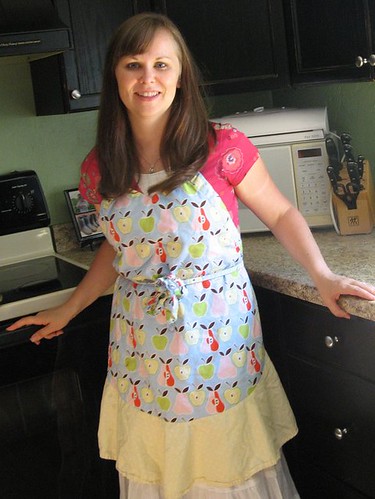
And I didn’t even get a stomachache.
Here’s to many happy returns of the day!
Like this:
Like Loading...
by Heidi Schulz | Aug 17, 2011 | Heidi and Her Family
Today is my 36th birthday and I think I may finally be growing up.

I have been known to get rather frustrated on my birthday because, you know… it’s my day and everyone must serve me, blah, blah, blah. But then, right in the middle of my queen for a day fantasy, real life gets in the way. Walt gets stuck at work and comes home later than I had hoped for and Newt doesn’t do something I ask her to and my mom forgets to call and then oh-my-gosh-didn’t-you-people-know-it’s-my-birthday! I get in a bit of a funk.
Why do we do that? (Like how I just dragged you into this with that “we”?) Is it the need for proof that we are loved and accepted? Is it the desire for just one day to be the most important person around? Maybe… but here’s the thing. I really do know that I am loved and accepted. And I also am quite aware that I am not the most important (since that label is a big fat lie) and if I ever start to feel like I should be, I’m in trouble.
I don’t want my heart to be wired that way. Truly. Not even for one day.
And just because I happened to be born on a particular day does not mean the beds won’t need to be made, if you know what I mean. It may be my birthday today, but it’s still a regular day. If this day is special at all, it is because the people I love are a part of it.
So here’s what I think. Today, on the anniversary of the day of my birth, I am going to forget about me. Instead, I’m going to try to make this world a little bit better. I am going to try to make someone else’s day brighter because I exist.
All day today I am going to be looking for little acts of kindness that I can perform. Will you celebrate my birthday with me by doing the same? And, would you mind telling me about it? Leave a comment here or on facebook. Or tweet your act of kindness and use the hashtag #heidisbday. Since I am now 36, I’d love it if there were at least 36 acts of kindness done in my name today.
I’m getting ready to blow out my candles, will you help my birthday wish come true?
Like this:
Like Loading...
 Here’s what has been off the shelves and in our hands this week:
Here’s what has been off the shelves and in our hands this week:, by Oliver and Rachel DeMille
. While that book is excellent at explaining the What and Why of TJEd, it falls short when it comes to How. Leadership Education helps to fill that gap. As we are gearing up for another school year, I’m reading it (again) and feeling both excited and inspired about where we are and where we are heading.
, by Jonathan Swift
, by Phyllis Reynolds Naylor
, by Karen Cushman
. Matilda Bone revisits that time period. Abandoned by the stern and wealthy priest who raised her, Matilda becomes a reluctant servant to the local bonesetter. This new servile life is frustrating and unsettling to a girl who “knows Latin, French and some Greek, as well as reading writing and figuring…can name the three wise men, the seven deadly sins and a great many of the 133,306,668 Devils of Hell.” Yet Peg, the good natured (though illiterate!) bonesetter seems to be giving Matilda an education in matters even more important. I think there will be quite a lot for Newt and I to discuss as we read.
, by Phyllis Reynolds Naylor
, by Laura S. Jeffrey












